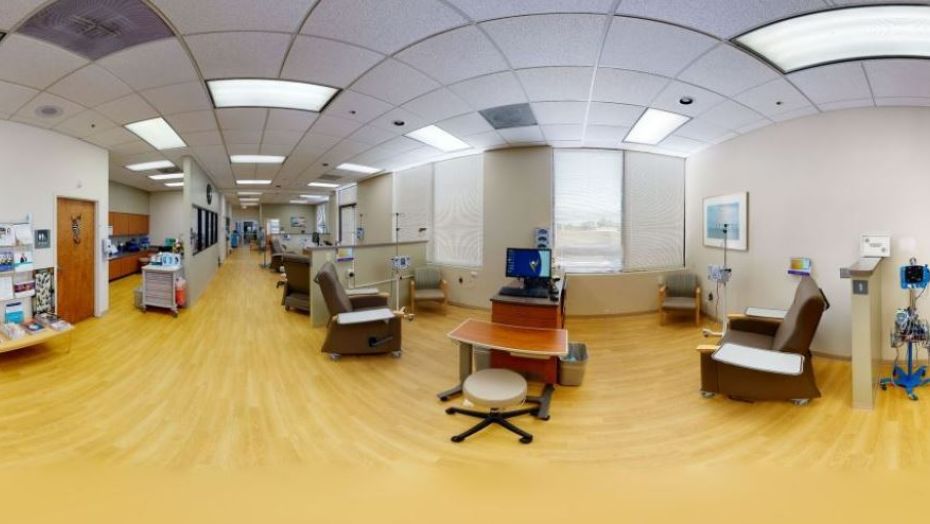
When Are Persistent GI Issues More Than Just Stomach Pain?
Most of us have experienced stomach pain or gastrointestinal issues at one point or another, but for people suffering from persistent abdominal pain, an accurate diagnosis could be far more pressing.
Although the diagnosis of a neuroendocrine tumor is uncommon, it is estimated that 12,000 people in the United States are diagnosed with this rare disease each year, and approximately 175,000 people are currently living with this disease. The tumors, called NETs, are often slow growing, can arise in most organs of the body and can come with a multitude of symptoms. Because the symptoms can be vague, or even mistaken for other conditions, there is often a long delay between the onset of symptoms and a neuroendocrine cancer diagnosis. Approximately, 58% of patients have a tumor spread to other areas of the body at the time of diagnosis. Patients commonly have their diagnosis confused with other conditions such as dyspepsia (indigestion), irritable bowel syndrome or Crohn’s disease. Due to the rarity of NETS, approximately 90% of NET patients are initially treated for the wrong disease or condition.
What is a neuroendocrine tumor?
A neuroendocrine tumor is a rare (sometimes hormone-producing) tumor that can originate anywhere in the body. They are usually found in the digestive tract, pancreas, rectum, lungs or appendix. Neuroendocrine tumors are cancers that begin in specialized cells called neuroendocrine cells. These cells receive neuronal input, and in response, release specific messaging molecules (such as hormones) into the blood.
What are the symptoms?
In addition to persistent abdominal pain, flushing (reddening of the face), diarrhea, and heart palpitations are the most common symptoms. Lightheadedness, wheezing and blood sugar changes can also be symptoms, but are less common. In many cases, symptoms will overlap with other medical problems. Sometimes, patients will have no symptoms at all.
How is a NET diagnosed?
Most neuroendocrine tumors are found unexpectedly when people have imaging scans (such as a CT), or a medical procedure done for reasons unrelated to the tumor. If your doctor suspects a NET, they will ask for a complete medical and family history and perform a thorough exam. The following tests may be used to diagnose a NET:
- Blood/urine tests: Your doctor may need samples of your blood and urine to check for abnormal levels of hormones and other substances. Urine tests check the amount of 5-HIAA, a breakdown product of serotonin that is made by some NETs. A blood test to measure specific biochemical markers, such as serotonin, neurokinin A, pancreastatin and chromogranin A, may also be used to aid in the diagnosis and monitoring of NETs.
- Endoscopy: An endoscopy allows the doctor to see inside the body with a thin, lighted, flexible tube called an endoscope. There are many different types of endoscopy, including upper endoscopy to examine the esophagus and stomach and colonoscopy to examine the rectum and colon.
- Imaging: Imaging tests, including computerized tomography (CT scan), magnetic resonance imaging (MRI) and nuclear medicine PET scans, can be used to identify the primary tumor and determine the extent of the metastasis, or spread.
- Biopsy: A biopsy is the removal of a small amount of tissue for examination under a microscope. A pathologist will analyze the sample and determine if there is a diagnosis of a NET.
When should I see a NET specialist?
Your primary care doctor or local hospital may refer you to a specialized team who is more familiar with managing and treating neuroendocrine cancer, especially if ongoing treatments for other conditions are not working. Because NETs are so rare, this may require you to travel to the closest specialty clinic. A multidisciplinary team may include an oncologist (cancer specialist), surgeon, endocrinologist and gastroenterologist.
The Ochsner Neuroendocrine Tumor Program, located at Ochsner Medical Center – Kenner, is one of the largest NET programs in the country and is a leader in the diagnosis and management of all forms of neuroendocrine tumors. Our team’s dedication has led to superior outcomes for patients with NETs in the United States and abroad. Our team includes specialists in medical oncology, surgical oncology, nuclear medicine, radiology, gastroenterology and nutritional support.
To learn more about the Ochsner Neuroendocrine Tumor Program, click here, or call 504-464-8500.


-d10df263c2.jpg)
